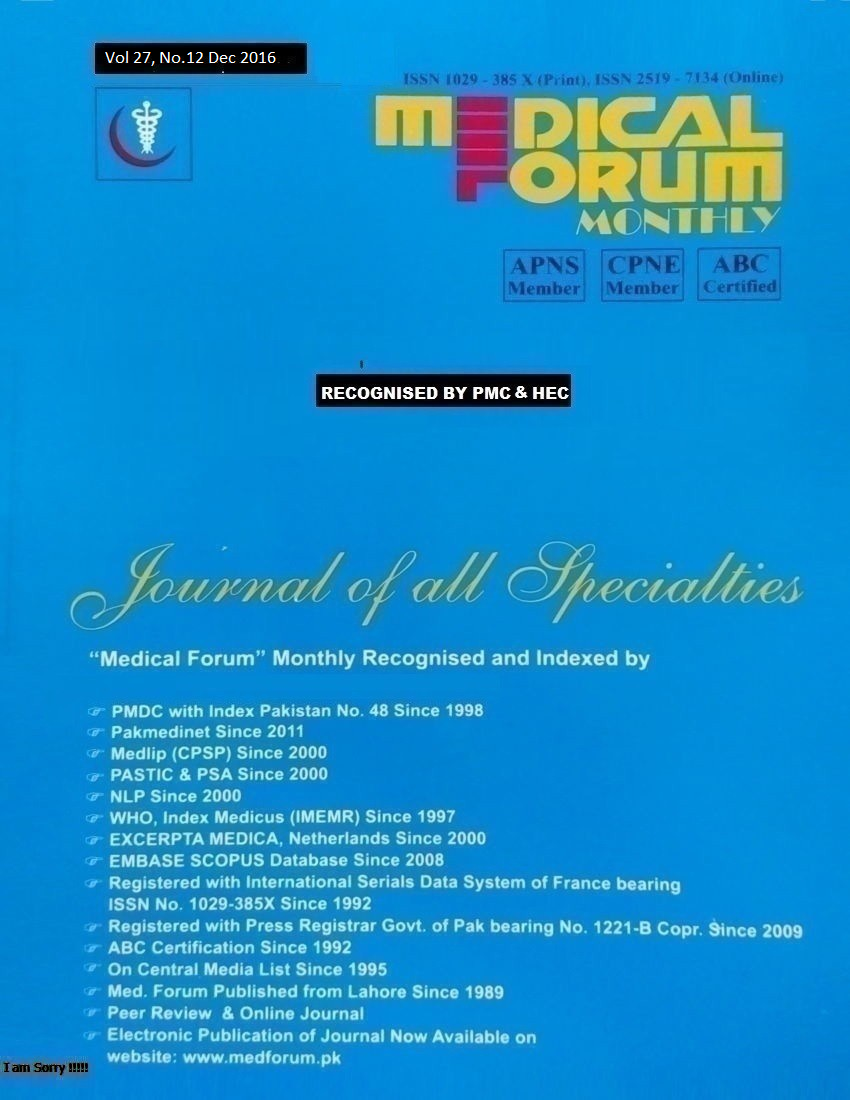
9. Aetiology and Clinical Presentation of Paediatric Cholestatic Liver Disease - A Single Centre Experience
|
|
Muhammad Arshad Alvi1, Iqtadar Seerat1 and Ghaida Dahlawi2 |
ABSTRACT
Objective: To evaluate the causes, clinical presentation and outcome of paediatric cholestatic liver disease in a tertiary centre.
Study Design: Observational / descriptive study.
Place and Duration of Study: This study was conducted at Pediatric Gastroenterology, KFSH&RC, Jeddah from September, 2006 to September, 2016.
Materials and Methods: A data sheet was designed to collect data from hospital ICIS power chart system. Children with initial presentation of cholestatic liver disease below the age of six months were included in this study. Children with autoimmune hepatitis, wilson disease and hepatitis B and C were excluded from the study.
Results: Among 25 children 18 were male and 7 were female and male to female ratio was 2.5:1. Regarding the aetiology of cholestatic liver disease 8 children (32 %) were diagnosed with PFIC II. There were 6 cases (24% ) of idiopathic hepatitis , 4(16 %) with Alagille syndrome , 3 (12%) with biliary atresia, 2 children (8% ) of sclerosing cholangitis and 2 (8% ) with mitochondrial disease. In our study almost all children 25(100%) presented with jaundice, 7(28%) children were with failure to thrive, 5(20%) children had a significant abdominal distension, 7(28%) children had developmental delay ,only two (8%) children have pruritis. Out of 25 children 23 (92%) survived and only two children (8%) died.
Conclusion: In our study the PFIC II remains the most common cause of cholesatic liver disease. The most common clinical presentation was jaundice and with early management the outcome was good.
Key Words: Cholestasis, liver disease, Ideopathic hepat t s, PFIC, Alagille Syndrome, Biliary atresia
Citation of article: Alvi MA, Seerat I, Dahlawi G. Aet ology and Clinical Presentation of Paediatric
|
Cholestatic Liver Disease - A Single Centre Exper e |
ce. Med Forum 2016;27(12):33-35. |
|
|
|
|
